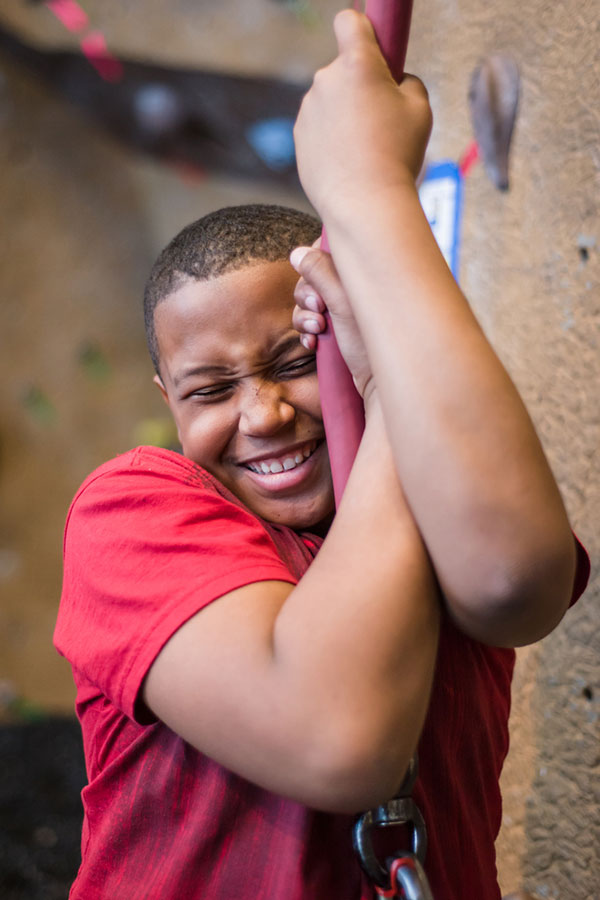Information for Parents,

The Schools Group has partnered with Chicago Public Schools since 2010 to place counseling and psychology graduate students into schools that have requested additional counseling services for their students. Our interns work two full days per week in the same school for the entire academic year. This allows them to build strong relationships with students, teachers, and staff in order to provide consistent and individualized support to the students they work with.
Our interns come from the top professional psychology graduate schools in Chicago. They are all second or third-year master’s level students who are selected because they have experience with and prefer working with children and adolescents. Some are specializing in child and adolescent psychology, others in sports and health psychology, forensic psychology, or community mental health.
Students typically are referred to the program by teachers, counselors, or administrators. Parents can request counseling services for their child through the school counselor or their child’s teacher. Children sometimes ask for counseling on their own. We see students for a variety of reasons and help them find constructive ways to cope with social, emotional, behavioral, and academic challenges.
Yes. It is up to the child to decide if they wish to participate after their initial session. If a child wants to continue, they will be given a consent form to take home. This form should be signed and returned by a parent or guardian. Services can be discontinued at any time by the parent, guardian, or by the child.
We work closely with your child’s teachers to schedule sessions at appropriate times and to make sure that the time away from class (30 minutes once a week) does not interfere with instructional goals. We defer to teachers if they feel a session needs to be skipped for a week, and we regularly review with teachers and staff how to best serve the needs of the students we see.
Interns are equipped with a variety of supplies that allow children to explore creative, aggressive, nurturing, scary, and imaginative activities. It is completely up to the child to choose the activity or direct the conversation. This allows them to shape the session to suit their needs at that moment. The counselor is trained to respond to the child’s actions or comments in a way that conveys warmth and empathy and supports the child’s agency. In this approach, it is the quality of the relationship that is therapeutic rather than any specific content.
Although some children use the session to verbalize their thoughts, feelings, and concerns, most do not have the capacity to process and reflect the way adults do. Children are more likely to talk about events that have occurred (e.g., they saw their cousins) or events they anticipate (birthdays, holidays) or about the game or project they choose for that session. Some narrate their own play—telling stories with figures, describing what they are building or drawing—and others talk very little.
Among the materials we provide are some that reinforce executive functioning. Games structure play and help children learn about control and outcome, winning and losing. Other materials are tactile, rhythmic, and stress-reducing. Within the counseling relationship, feelings and conflicts that arise during activities can be experienced, understood, and addressed in new, growth-promoting ways. Over time, students tend to experience increasing self-acceptance, self-understanding, and improved relationships.

Yes. Play gives children a way to express themselves freely, to process emotions, and to develop empathy, resiliency, self-regulation, and self-esteem. Interns are trained to respond in specific ways to help encourage this growth. The effectiveness of the program is borne out every year in the survey we do with teachers at the end of the year to evaluate our program. In addition, there are numerous research studies that support the way we work with children. One large review of client-centered play therapy (CCPT) in schools showed that children who participated demonstrated improvement over time in self-efficacy, reading ability, and general academic achievement. (PCEP, 2016, Vol.15, No.1, 5-18, Jane and Ray)
What we do allows the child to more fully develop the “self.” The stronger the “self,” the better a person can respond to stressors that arise. By allowing children to self-direct within a safe and accepting environment, they are free to try new things, fail, and try again without fear of being judged. They can work through emotions and relationships at their own pace in ways that are suited to their age.
Yes, although there is usually nothing very exciting or specific to report. If we become aware of any issue that we feel a teacher, the counselor, parent, or guardian needs to know, we would immediately do so. Otherwise, we promise the children that what they do in their sessions stays between them and the counseling intern. Without this confidentiality, it would be impossible to establish the trust and safety needed to support growth.
We recommend reading Dibs In Search of Self by Virginia Axline. She is the founder of child-centered play therapy, and this book recounts her work with one little boy. It is a fascinating story and provides a good idea of how play therapy works.
The internet offers many resources on the importance of play in neurosychology terms. We recommend looking at the work of Dr. Bruce Perry.
The Association for Play Therapy has a You Tube channel and website that offers resources on a variety of play therapy approaches and resources for parents in English and Spanish.
